Before we dive into the “don’t do this” list, let’s talk about why elderberry juice is suddenly everywhere.
We’re talking Sambucus nigra—yeah, I know, sounds like a Hogwarts spell, but it’s just the fancy name for European black elderberry. These little, deep-purple berries offer a strong effect:
- Immune-Boosting Superhero – Elderberry has long been relied upon to ward off seasonal ailments. Some studies even say it might help you get over colds and flu faster.
- Antioxidant Overload – That gorgeous purple color? It’s from anthocyanins, which are like tiny bouncers protecting your cells from oxidative stress.
- Inflammation’s Worst Enemy – The same anthocyanins also help calm inflammation. Good news if your joints ever feel like they’re 90 years old.
- Vitamin Jackpot – Packed with vitamin C, B vitamins, iron, calcium, and even something called GLA (gamma-linolenic acid—sounds intimidating, but it’s a healthy fat).
Pretty awesome, right? But here’s the thing—like any “superfood,” you have to use it right to reap the rewards.
Table of Contents
7 Rookie Elderberry Juice Mistakes (and How to Avoid Them)
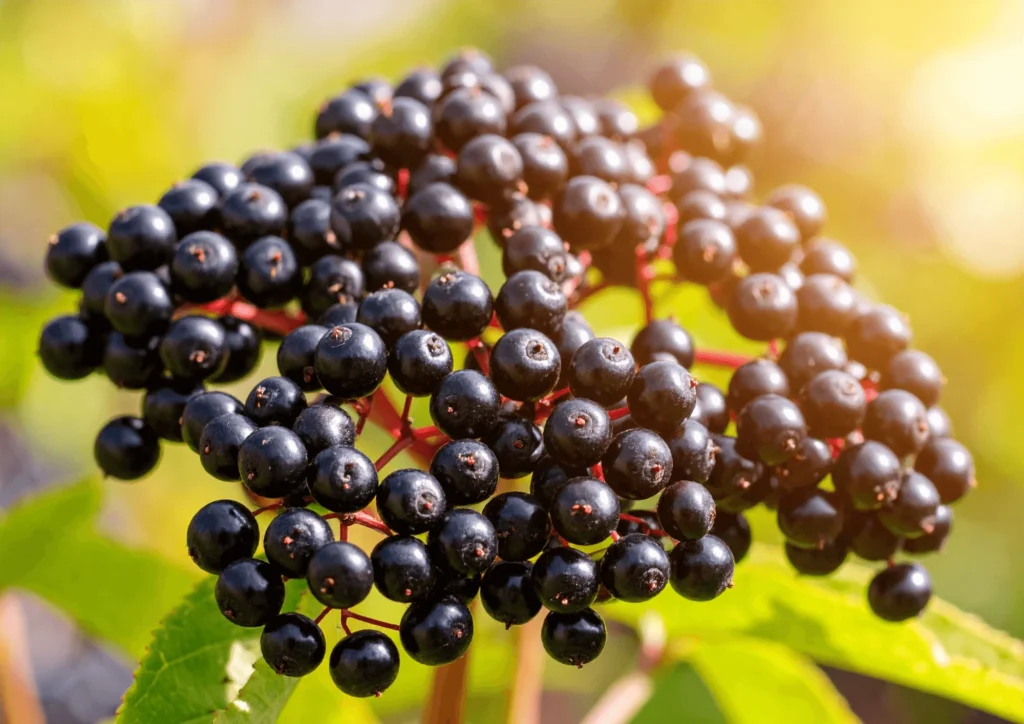
1. Thinking this Juice Alone Will Make You a Cold-Proof Superhuman
I wish I could tell you that sipping elderberry daily would turn you into some kind of immune system warrior who never gets sick. Spoiler: it won’t.
Why this is a problem: Your immune system is like a whole team—sleep, diet, stress levels, and other nutrients all play a role. Elderberry is more like the star forward, not the entire lineup.
How to fix it:
- Sleep (Netflix can wait).
- Keep stress in check (your body hates cortisol overload).
- Eat real, whole foods (not just toast and coffee).
- Move your body—yes, walking to the fridge counts, but maybe try more than that.
2. Skipping the “Ask Your Doctor” Step
Just because it’s from a plant doesn’t mean it’s harmless for everyone.
Why this matters: Elderberry juice can interfere with certain medications or health conditions. Taking too much is not good; too little might not show results.
How to fix it:
- Have a quick chat with your doctor, naturopath, or nutritionist.
- Check if you’re pregnant, breastfeeding, or have autoimmune issues.
3. Forgetting the Sidekicks
Elderberry works better with friends. Pair it with other immune rockstars.
Buddies to add to the mix:
- Zinc (keeps immune cells on point).
- Vitamin C (the classic).
- Vitamin D (hello, sunshine vitamin).
- Probiotics (because gut health = immune health).
- Medicinal mushrooms like Reishi or Chaga (no, not the pizza kind).
4. Eating Raw Elderberries (Please Don’t)
This one’s a biggie.
Why this is bad: Raw elderberries—and their stems, leaves, and seeds—contain compounds that can cause, let’s just say, “a fast trip to the bathroom” or worse. Cooking gets rid of the bad stuff.
How to fix it:
- Never snack on raw berries.
- Stick to prepared juice, syrups, or extracts.
- If you DIY it, always simmer the berries first.
5. Expecting It to Cure Every Little Thing
I love elderberry juice, but it’s not magic in a bottle.
Why this is unrealistic: It helps your immune system, but it’s not a replacement for your doctor.
How to fix it:
- Make it a component of your holistic health plan.
- Drink it along with water, eat good food, and rest (seriously, just nap).
6. Buying the Junky Stuff
Some elderberry juices are basically sugar water with a splash of berry.
Why this is a problem: Low-quality products lead to low-quality results.
How to fix it:
- Choose trusted brands.
- Look for organic elderberries and little to no added sugar.
- Read the ingredient list—if it looks like a chemistry set, skip it.
7. Playing the Dosage Guessing Game
Too much elderberry can give you tummy trouble; too little might not help at all.
How to fix it:
- Follow the label instructions (boring, but important).
- Start small if you’ve never tried it before.
- Only adjust if your health professional gives the green light.
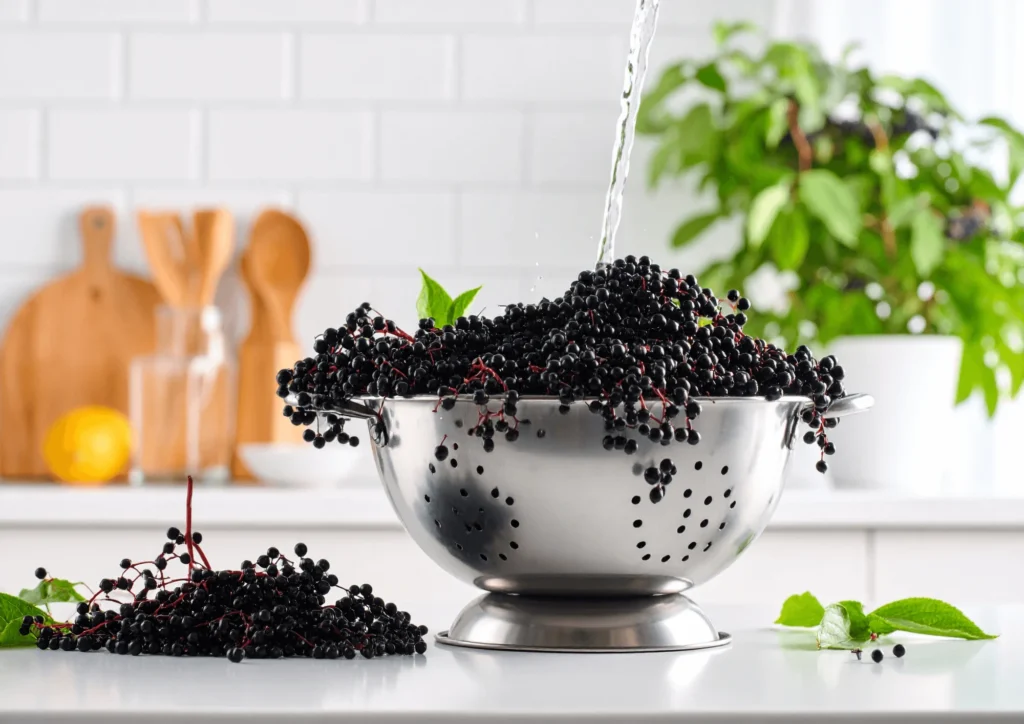
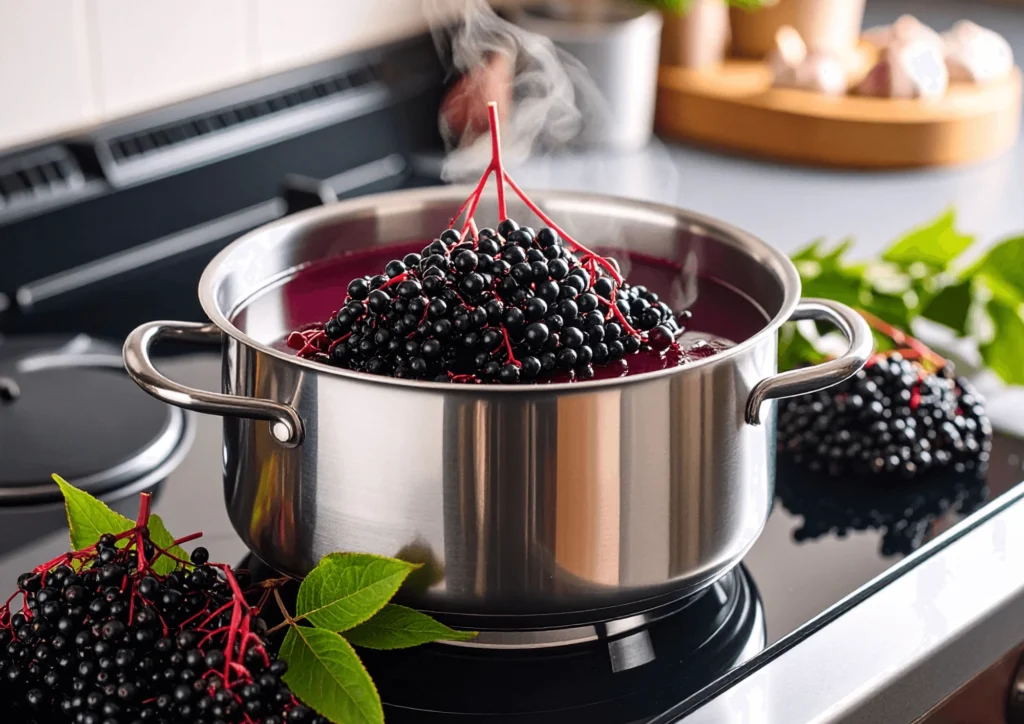
How to Drink Elderberry Juice Like You Know What You’re Doing
Once you’ve dodged the rookie mistakes, here’s how to enjoy it every day.
Easy Daily Ideas:
- A spoonful of syrup in the morning—old-school style.
- Blend into hot water and lemon for a comforting tonic.
- Toss it into your smoothie for a purple boost.
Getting Fancy: Elderberry Salad Dressings
Elderberry syrup serves more than just drinks—it’s a top choice for salad dressings.
Balsamic Vibe
- 3 tbsp elderberry syrup
- 2 tbsp balsamic vinegar
- 1 tsp Dijon mustard
- ¼ cup olive oil
- Salt & pepper
Citrus Twist
- 2 tbsp elderberry syrup
- ¼ cup orange juice
- 1 tbsp lemon juice
- ¼ cup olive oil
- 1 tsp honey
- Salt & pepper
(Whisk, drizzle over leafy greens, add goat cheese + walnuts… chef’s kiss.)
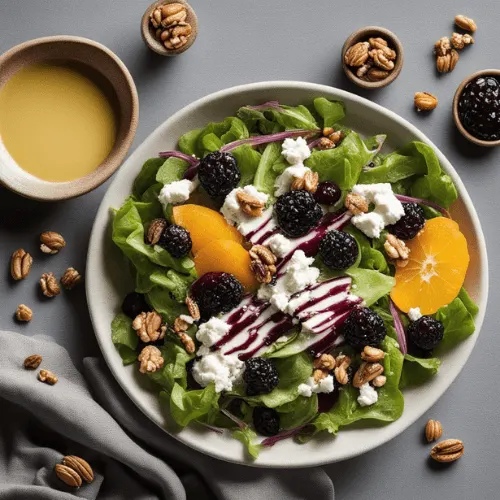
Beyond the Berry: Extra Immune Support Tips
Even the best elderberry habit won’t save you if the rest of your lifestyle is a mess.
The basics:
- Get your 7–9 hours.
- Chill out (literally—try a walk, deep breathing, or just cat videos).
- Move a little every day.
- Eat more plants and less junk.
- Drink water (coffee doesn’t count).
Bonus boosters:
- Echinacea
- Thyme
- Ashwagandha
- Garlic
- Propolis
Elderberry Juice FAQ
Can I drink this stuff every day?
Totally! Consider it a daily boost for your immune system. A little bit each day is a super common way to use it.
Are there any side effects?
As long as you’re using cooked elderberry syrup, it’s generally very safe. The main trouble comes from eating raw berries, so just don’t do that!
Is it good for colds?
Yes! This is what it’s most famous for. It seems to help shorten how long you feel miserable and yucky.
How fast does it work?
A lot of people say they start to feel a bit better within a day or two of taking it when they’re sick. It gets to work pretty quickly!
Is there anything I shouldn’t mix it with?
It’s pretty friendly with food, but if you’re taking any prescription meds, especially for your immune system, have that chat with your doctor first, just to be safe.
The Takeaway
So, what’s the final verdict? Elderberry isn’t a cure-all, but it can be a solid part of your wellness routine. The key is to use it smartly—avoid the common errors and think of it as a supporting player in your overall health.
Don’t look for miracles. Do your research on brands, start with a small dose, and please, consult a professional if you have any health concerns. Your future self will thank you.
The truth is, elderberry is an awesome natural remedy when you approach it with respect. It’s not magic, but it doesn’t need to be. Its real power lies in its long history of simply helping people feel better. This is the advice I wish I’d had from the start—now go use it responsibly!

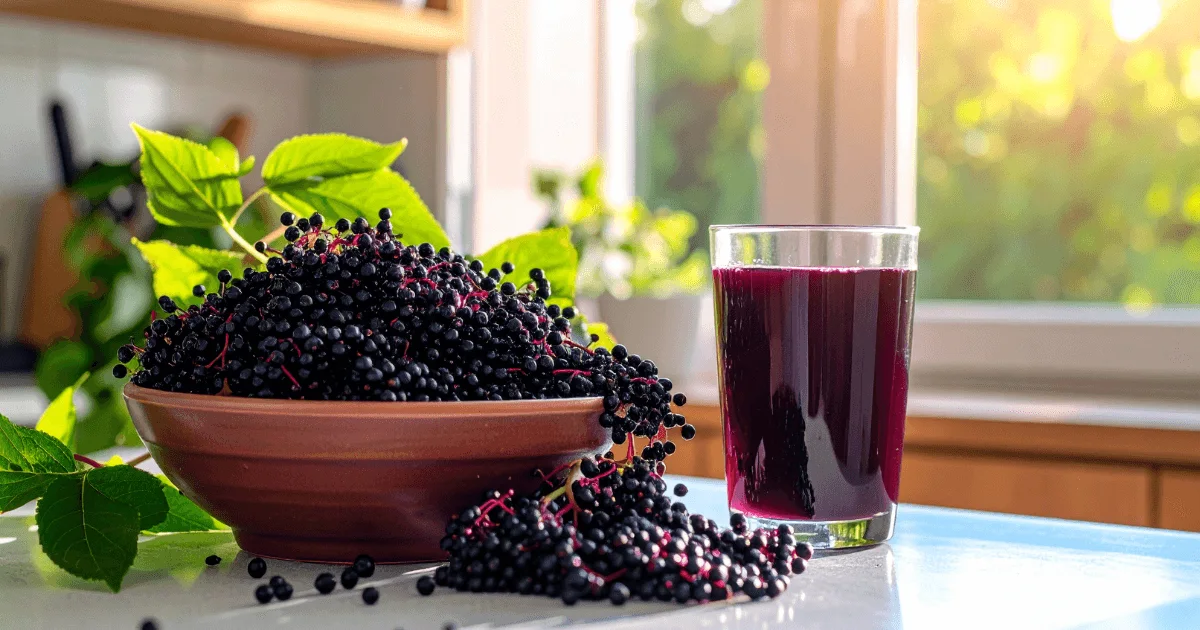
It’s actually a cool and useful piece of information. I’m satisfied that you shared this helpful information with us. Please stay us informed like this. Thanks for sharing.
Glad you liked it! Thank you so much for the feedback and the support. We will absolutely keep the helpful info coming!